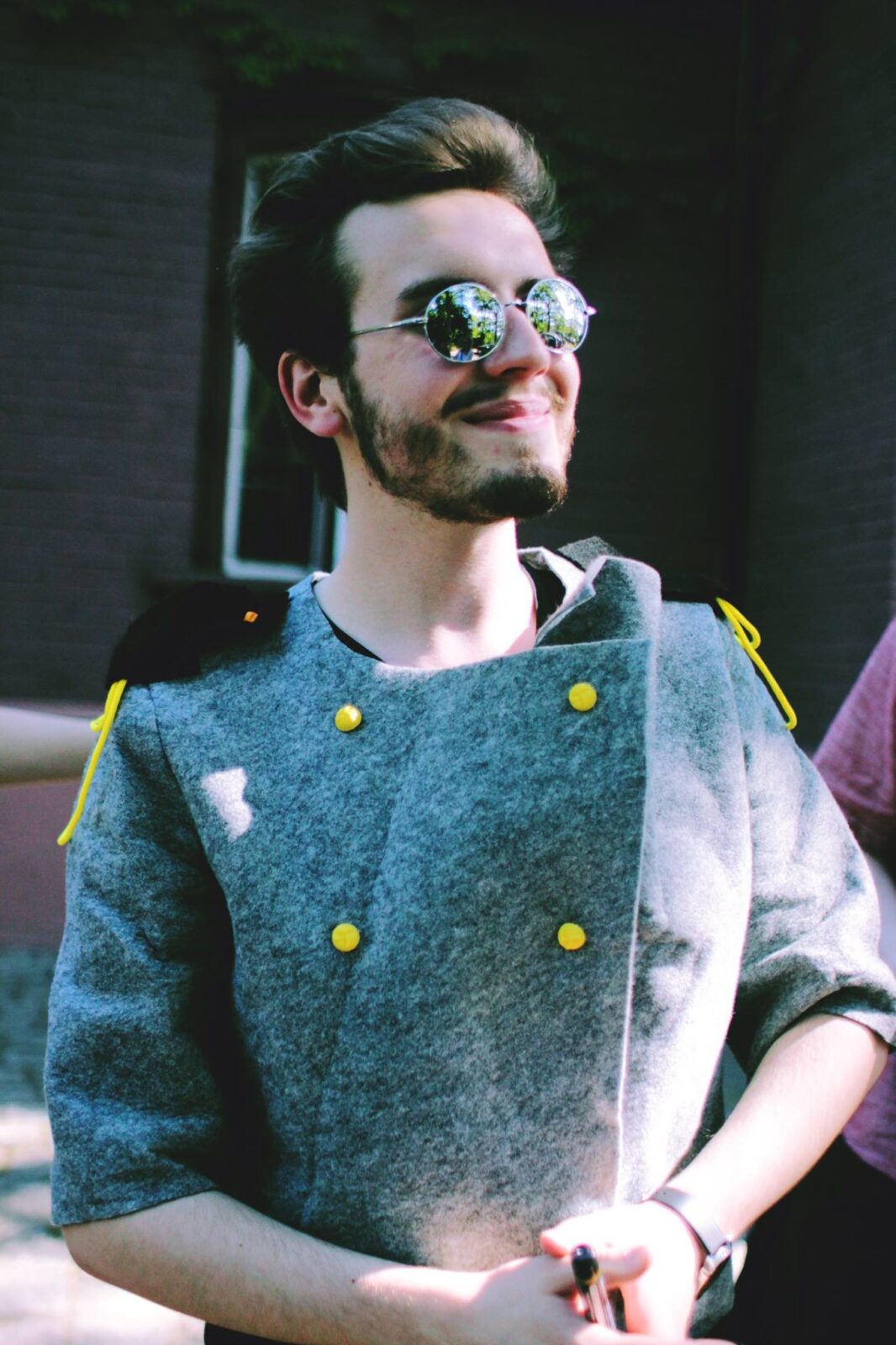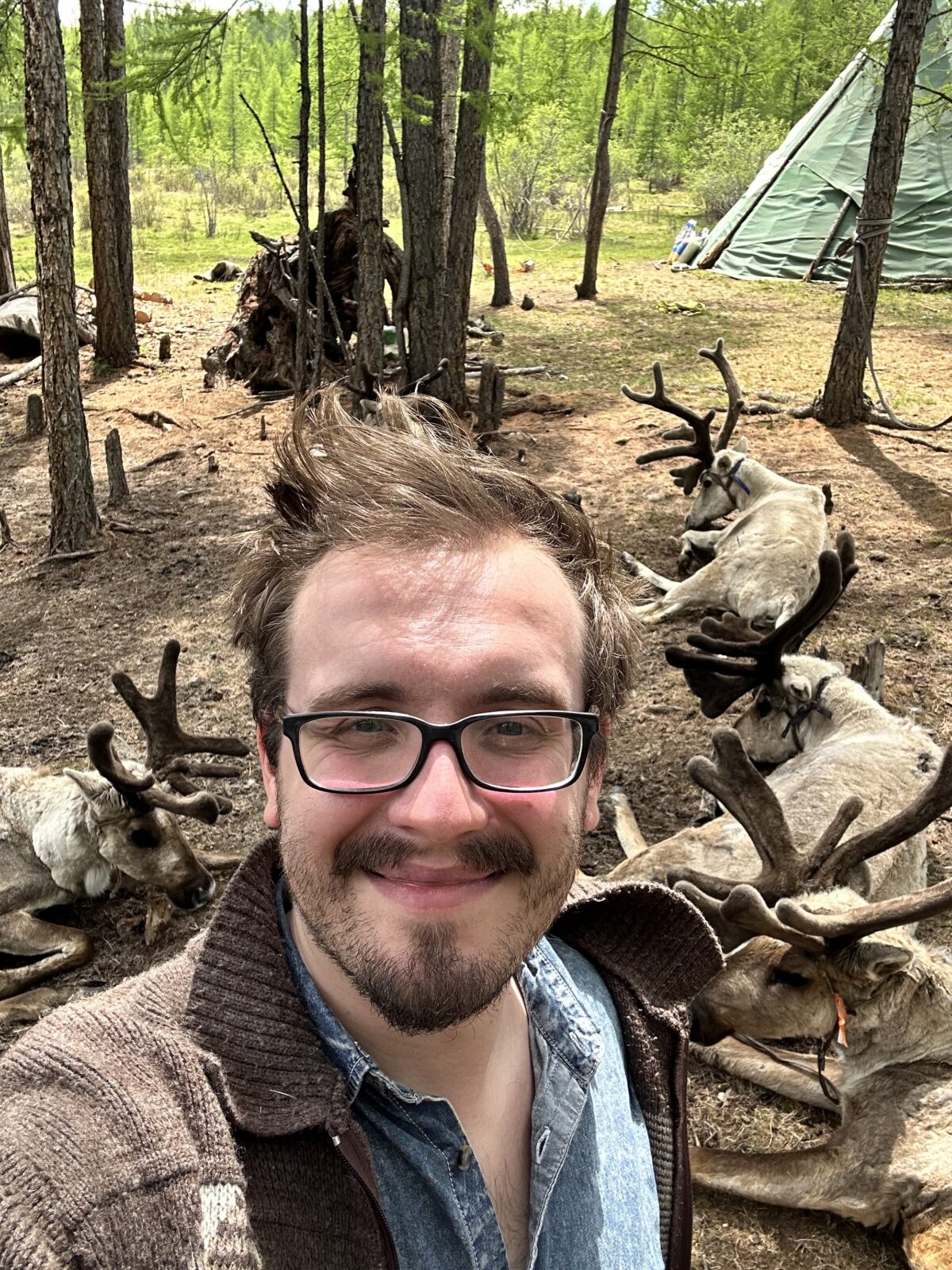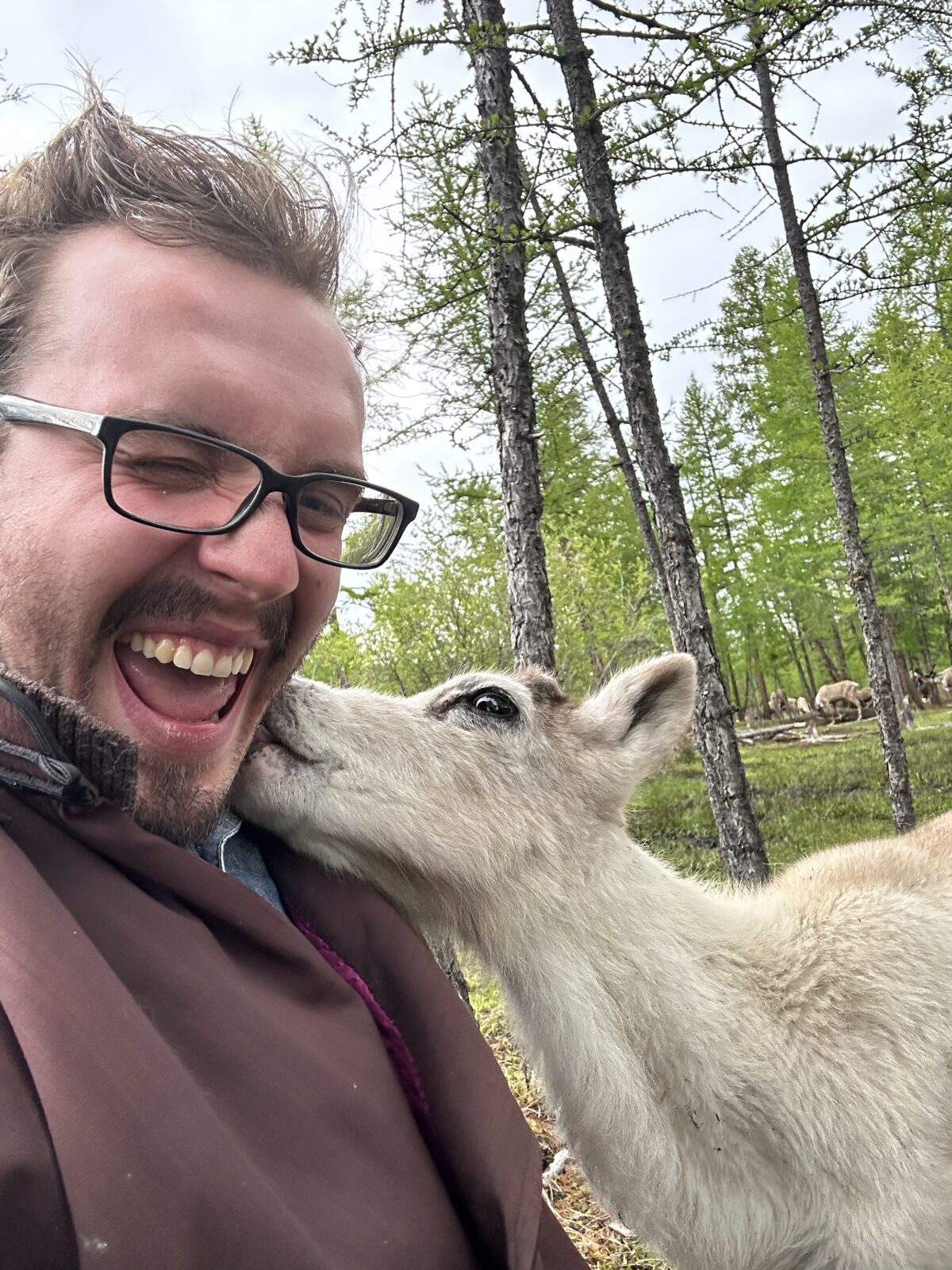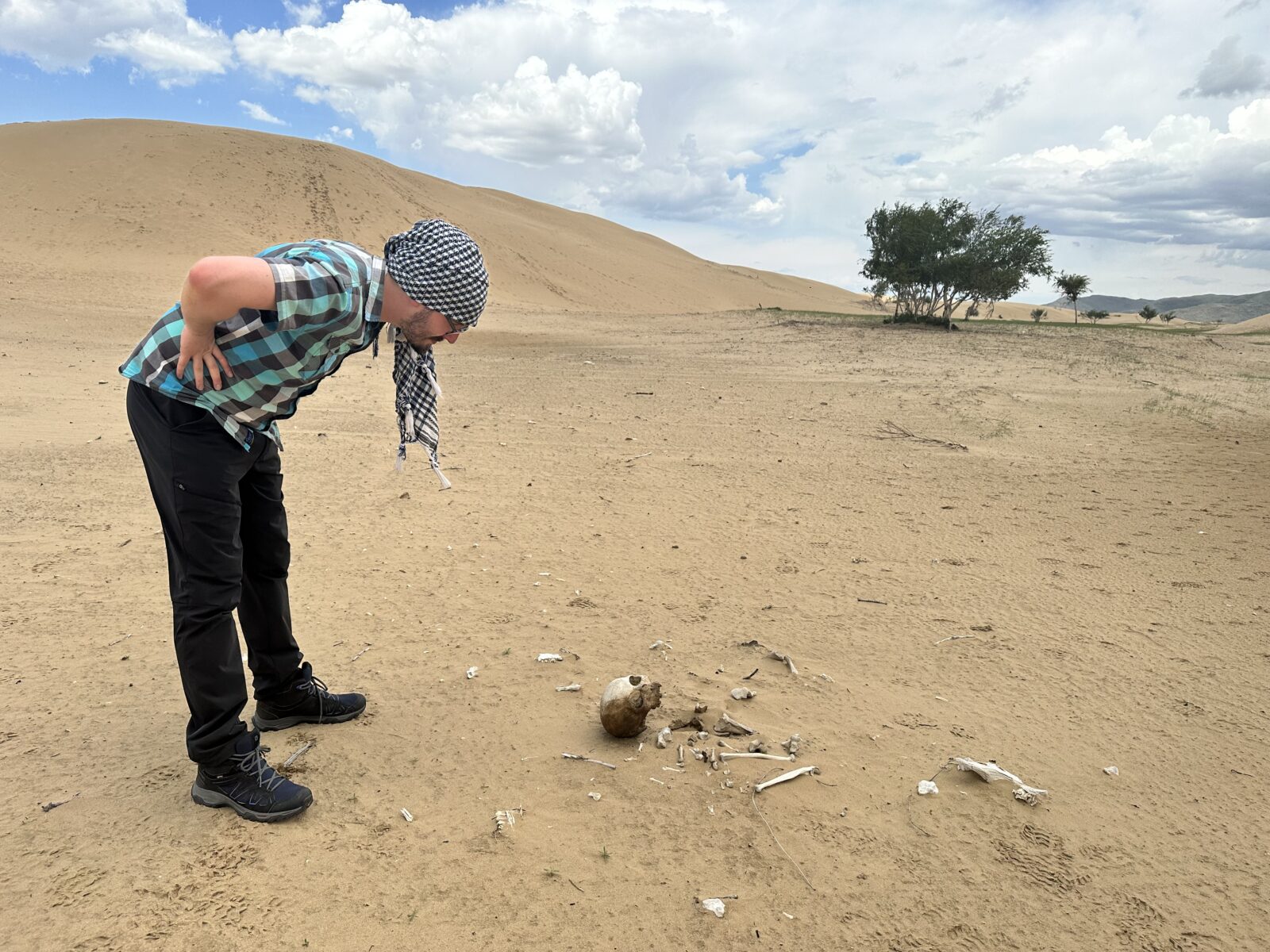
More or less sensitive to disgust
In his research, Michał Stefańczyk focuses on disgust, specifically the intersexual differences in sensitivity to disgust. He recently received the prestigious START 2023 scholarship to pursue his studies.
You have just returned from Mongolia. What were you doing there? What were you researching?
– I conducted research as part of the grant OPUS, which was received and supervised by professor Piotr Sorokowski. I traveled to the nomadic Tsaatan people (literally “reindeer herders”, which is exactly what they are doing daily), who live in the mountains, forests, and swamps of southern Siberia, near the border with Russia (around Lake Khovsgol, approximately 400-500km southwest of Irkutsk). I collected quantitative and qualitative data from them regarding art, music, romantic relationship preferences, and environmental preferences.
What is your focus in your research?
– I study disgust, specifically the intersexual differences in sensitivity to disgust. I am particularly interested in disgust in the context of mate choice. I am examining existing hypotheses in the literature that attempt to explain why women are cross-culturally more sensitive to disgust than men.
What is the psychology of disgust?
– The psychology of disgust is a field of psychology, typically interpreted from an evolutionary perspective, that deals with disgust as an emotion and sensitivity to disgust as a trait/state. Disgust is associated with a wide range of characteristics, from biological sex to political views, and even to risk-taking behavior.
And what about the psychology of profanity?
– It is the psychological phenomena behind swearing—why we do it, the effects we achieve through swearing, and the cognitive and physiological phenomena associated with profanity, both in terms of its usage and reception. Generally speaking, profanity is not just about language but also about the psyche.
Why are you specifically interested in this field?
– When I consciously think about it, I come to the conclusion that I am simply interested in everything negative and unpleasant! That’s why I study disgust, which is, in fact, the true opposite of love. That’s why I am interested in “dirty words” and why I engage in scientific projects related to dark personality traits (psychopathy, Machiavellianism, narcissism) and moral dilemmas, where we often have to choose the lesser evil (the trolley problem). This is my personal opinion, but I believe it is much more interesting and engaging than the other “positive” pole of psychological traits.
But do you see romantic relationships as relevant despite the dark personality traits?
– As I mentioned earlier, dark personality traits, understood as the construct known as the Dark Triad but also informally as any psychologically unpleasant traits (which have negative repercussions for the individual or their surroundings), are strongly related to love and romantic relationships. However, the connection is strong but negative. We do not want to be involved with individuals who elicit disgust. We change our opinions (usually for the worse, but not always) about people who use vulgar language. “Dark” individuals (psychopaths, Machiavellians, narcissists) have their own patterns and preferences when it comes to forming romantic relationships. They function differently in such relationships and have their own “dark” goals. And all of this is extremely fascinating to me—the much-talked-about romantic relationships but from the perspective of all these dark traits.








***********************
Among the winners of the Foundation for Polish Science START 2023 competition, there are two female researchers and one male researcher from the University of Wrocław.
The prestigious scholarships were awarded to:
Marzena Pander from the Faculty of Chemistry (field: chemistry)
Natalia Porębska from the Faculty of Biotechnology (field: biotechnology)
and Michał Stefańczyk from the Faculty of Historical and Pedagogical Sciences (field: social psychology).
Ed. Katarzyna Górowicz-Maćkiewicz
Translated by Maja Kurczyńska (student of English Studies at the University of Wrocław) as part of the translation practice.



